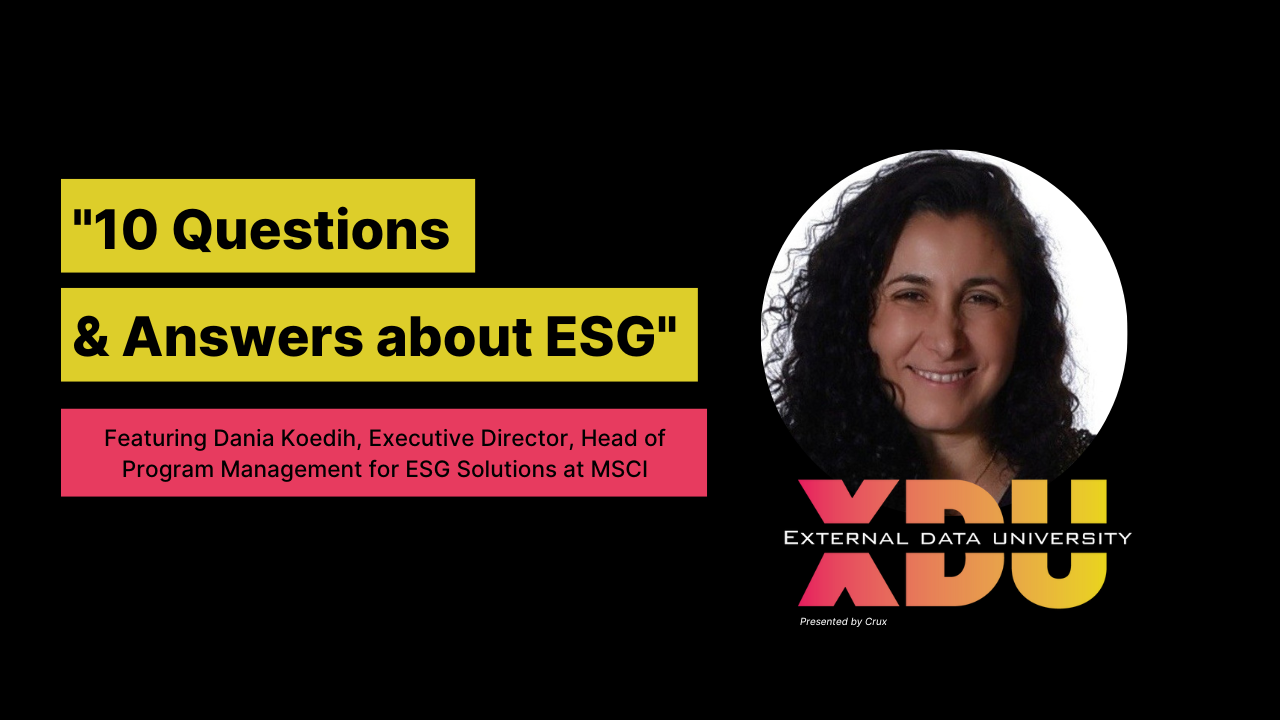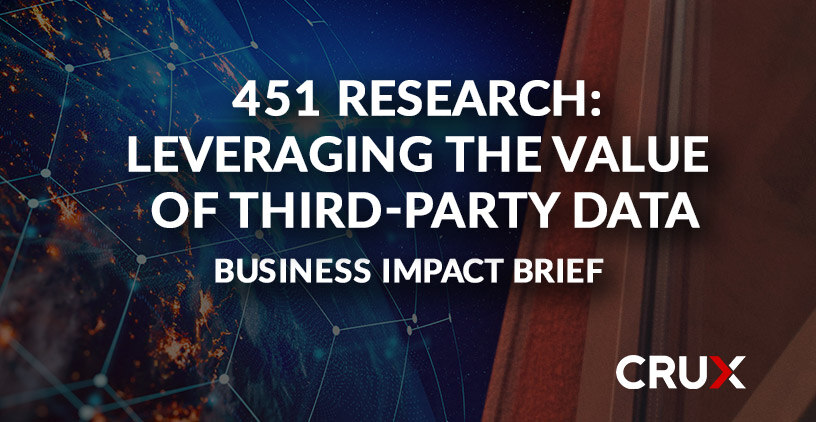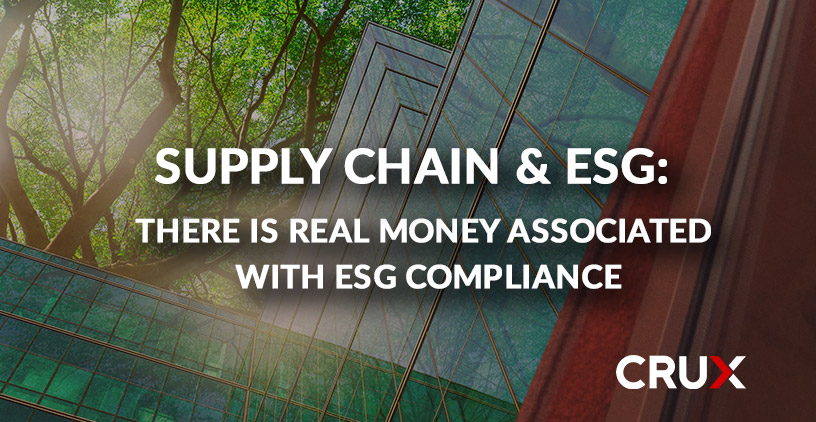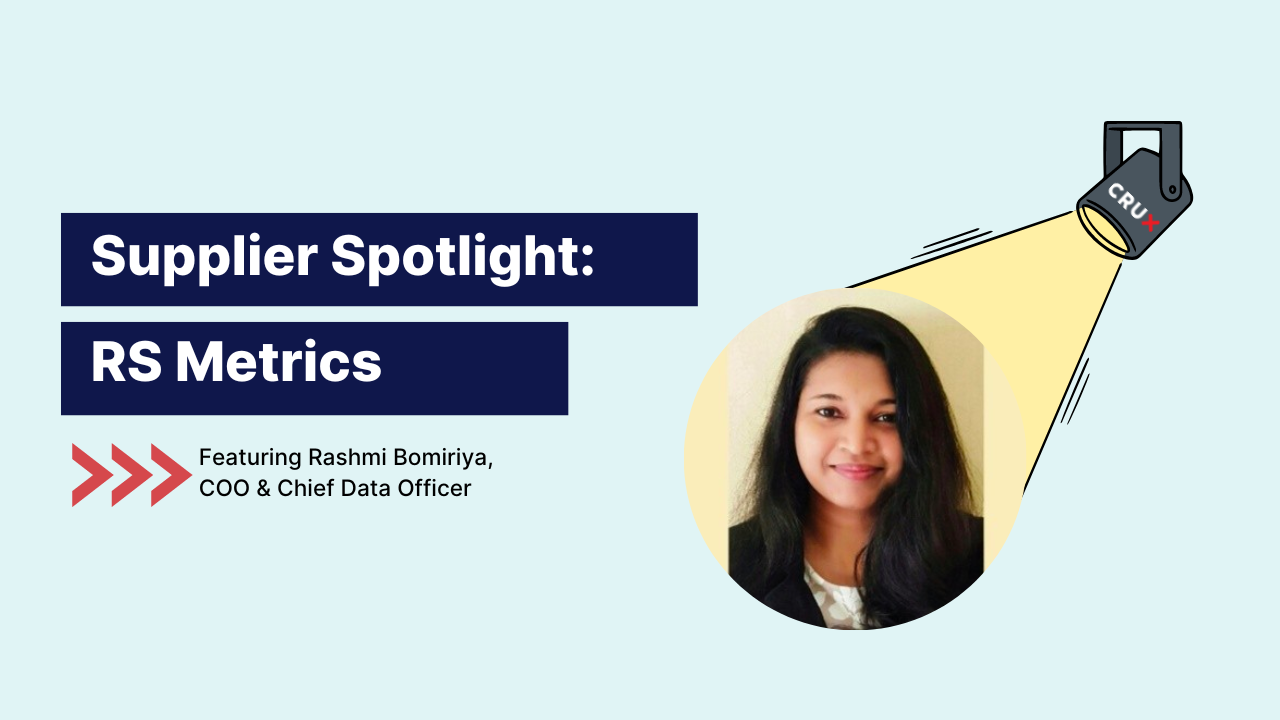451 Research: Leveraging the Value of Third-Party Data
Organizations have diminishing tolerance for IT investments with low ROI.

A conversation with Dania Koedih, Executive Director, Head of Program Management for ESG solutions at MSCI.
Recently, as part of our XDU series, we had the pleasure of sitting down with Dania Koedih, Executive Director, Head of Program Management for ESG solutions at MSCI, where we talked through all things ESG from how it’s guided her career to what the future of ESG looks like.
You can watch the full interview here or read on for a quick summary of the discussion.
“I started my career in the ’90s as a software engineer. I moved around a lot of different industries and different segments. And I could say the bulk of my career was spent in the energy industry. Energy is very essential to our world, everything we do say, but understanding the impact that energy companies have on the world also both positive and negative was a contributor.
And, having spent, whether in working with energy companies directly or working at Microsoft, directing energy companies is all this immersion emerging of effectively a social change targeting specifically the environment. And, when MSCI reached out looking for someone, I thought this was a great way to contribute more directly to that change, whether it's on the environmental side or more broadly for social and governance.
Ultimately, ESG is a way to both address the impact that corporations have on the world, but also to manage our investments, our security, our wealth overall.”
“A lot of what's driving our focus is the demand that the investment community has for data and for processes and analysis related to environmental, social, and governance [in that] space.”
“A lot of the ESG data is really around how the business operates overall. And, it does actually provide a blueprint for what is more effective versus less effective.”
“The type of data we're collecting and how we're interpreting the data is evolving constantly.”
“So, we're constantly finding new sources that can be used to rate and assess overall. What's changing, potentially, is the granularity.”
“Maybe a fairly simple example, does this company have a carbon reduction target for a certain date? So that's a pretty yes or no answer, but what we're changing and how we're actually collecting information on the targets is getting very specific.
If you look at a company’s TCFD report, for example, there's a lot of language there. It's a lot of verbiage that you have to extract and interpret. And so a lot of the effort involved and where it gets very difficult to do through an automated fashion is to take something as complex as a multi-page document and turning it into a set of yes or no questions to derive one key interpretation. “
“And that's the 800-pound gorilla. This entire data pipeline is as complex as you can imagine. So yes, for all of those things we're in, we're applying any and all available technologies that exist today. We're always constantly looking to the next generation that's out there that solves further these types of problems.”
“In some cases, we have built applications that make the data visualization help our clients consume the data visually in a more straightforward way.”
“So, the data business specifically in the types of data that we deal with is very complicated. It's messy. Every single data source is its own special case. We have to build sometimes special specialized processes and data workflows.
And then, we have a very large technology team. A lot of them are highly skilled. They come from some of the largest technology companies. We work very closely with some of the most progressive technology companies as well, like Microsoft and Databricks. We are looking at the latest and greatest technology that's coming out of the industry.”
“Ultimately there's not gonna be a million ways of how this evolves. So looking at what the frameworks that are developing in the EU and in the UK is a good place to start to understand how this industry is going to shape overall.”

Organizations have diminishing tolerance for IT investments with low ROI.

Learn what Cannon Valley Research is all about directly from Jo Janssens in conversation with Crux Informatics CEO, Philip Brittan.“Crux offers data...

Supplier Spotlights highlight Crux's partners and shine a light on their unique data product offerings.